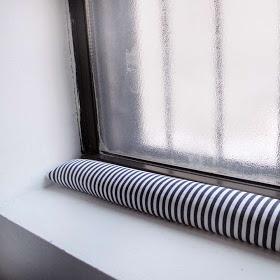Being a renter doesn’t mean giving up on energy efficiency. If you rent, you may pay your energy bills directly or they may be factored into the monthly rent. Either way, implementing these simple ideas will save energy and make your home more comfortable. If you pay the electricity bill, you’ll see some cost savings there too. If your landlord pays the utility bill, you can still enjoy the increased comfort and feel good about the energy saved. Plus, if your landlord is saving on utility costs, perhaps they’ll bypass a rent increase if you renew your lease.
Set it and forget it
Be sure to program your thermostat for maximum efficiency. The Department of Energy recommends set points of 68° in winter and 78° in the summer with a 7-10° set back (3-5° for heat pumps) when you’re not at home. Once you “set it and forget it,” a programmable thermostat will save you 1% for every degree difference on the thermostat setpoint, an average of 5% to 15% on total energy costs.
Yes, LED lighting is totally worth it
The price of LED light bulbs has come down while their longevity and quality of light have increased in recent years. At $2-5 per bulb, “soft white” LEDs designed to match the color output of incandescent bulbs are now available, and some can even be dimmed. Many LEDs have a rated life of up to 50,000 hours, meaning the bulb will last more than 11 years when used 12 hours a day.
Most significantly, LEDs use 70-80% less energy than incandescent bulbs. A lot of people are reluctant to switch out traditional bulbs until they stop working on their own, but the sooner you switch, the sooner you start saving, and the increased efficiency is so high the payback on the cost of the bulb is quick.
Slay electronic vampires
Unplug when not in use. It’s that simple. Many appliances continue to draw a small amount of power when they are switched off. These “vampire” loads occur in DVD players, TVs, stereos, computers and kitchen appliances. Unplugging electronics, or using the switch on a smart power strip to cut power to several appliances at once, starves these vampires.
In addition, when shopping for a new electronic, look for ENERGY STAR® certified products. The Department of Energy estimates that if all computers sold in the United States were ENERGY STAR® certified, more than $1 billion in annual energy costs would be saved per year. That’s equal to 15 billion pounds of annual greenhouse gas emissions or the emissions from more than 1.4 million vehicles.
Smart power strips are a good investment if you have trouble remembering to unplug items or switch off regular power strips. Smart power strips shut off power to electronics that go into standby or sleep mode without any action from you.
Make those curtains work for you
Curtains that reach to the window sill or floor, are hung close to the window and cover the entire window will cut down on drafts and increase comfort. When drawn during cold weather, most conventional draperies can reduce heat loss from a warm room up to 10%. Thermal or insulated curtains can reduce heat loss even more.
In winter, close all draperies at night, but open them during the day if the window receives direct sunlight. During summer, close curtains on windows receiving direct sunlight to prevent heat gain. Additionally, make sure any drapes or curtains (and furniture, too) are not blocking air registers to allow for free circulation of heated or cooled air from your HVAC system.
Using draft dodgers or ‘snakes’ at the bottom of doors and windows is another easy way to increase comfort and save energy.
Water conservation is energy conservation
Water heating accounts for 18% of a home’s energy usage. Cut your water use by taking shorter showers, washing clothes in cold water and running the dishwasher with full loads only and air drying dishes when possible. You can take it a step further by swapping out shower heads for low flow versions and adding aerators to sink faucets. Depending on your landlord, you might want to ask before replacing showerheads and adding aerators, but it’s also something that can be easily reversed when you move out if you save the old fixtures.
None of these simple fixes require your landlord or rental company’s permission, but if you are experiencing significant discomfort or exceptionally high utility bills, it might be worthwhile opening a conversation with the property owner about energy efficiency.
